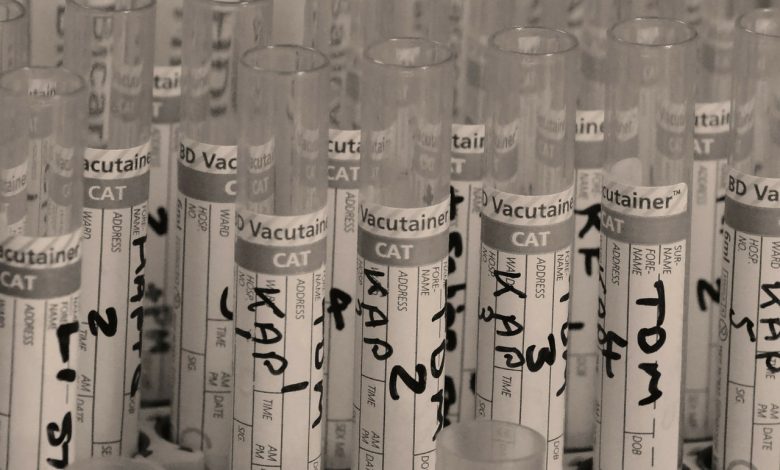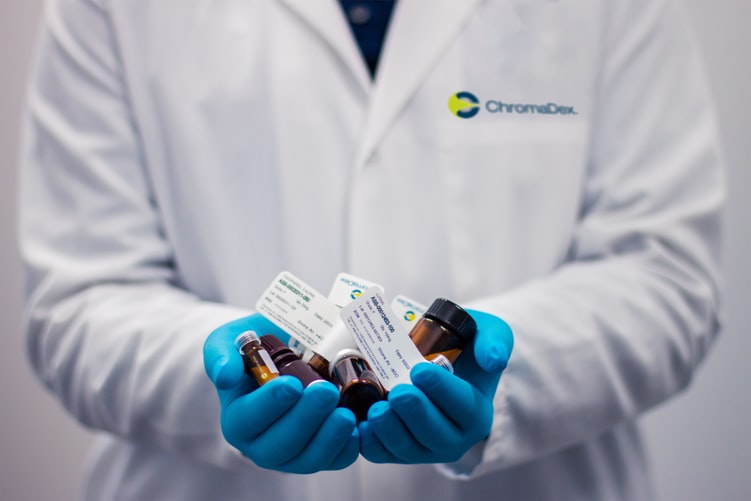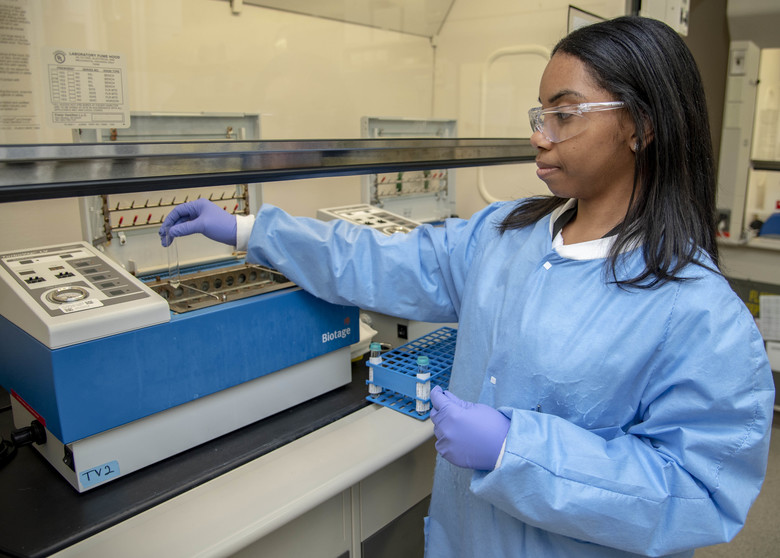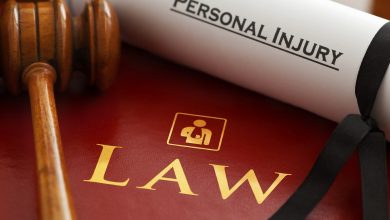Alcohol & Drug Testing For Probation and DUIs

One of the common consequences that may come with a felony is a probation or parole term, which will often come with the stipulation of not using any drugs or alcohol during this time. This often comes with random drug testing, requiring you to prove on a moment’s notice that you haven’t used drugs recently. However, these do have a limit on how far back they can test for drugs, as they leave your system at some point.
Additionally, we’ve established the serious felony charges that can come with receiving a DUI, but how does law enforcement discover the presence of drugs in your system? This is much harder to prove during a traffic stop than proving someone is intoxicated from alcohol, as drug tests can currently typically only done by blood, urine, and hair tests – something very difficult to get a warrant for and obtain a sample of on the side of the road. In order to have an arrest occur at the moment of driving under the influence, drug tests must be nearly instantaneous. Improvements are being made every day in order to allow law enforcement to better screen for drug use when necessary in a quick situation.
Drug testing is a vital part of the criminal justice system, used in many cases in order to prove that an offender is using or under the influence of an illegal substance. There are pros and cons to these types of testing, and the way it will be done may vary depending on circumstances of your crime and laws in your specific state. Failing a drug test can come with very serious consequences, which can often come in the form of a felony charge. It’s essential to be aware of what drugs they can test for, how long drugs can be detected for, ways that they conduct tests, and other details to ensure you’re never in violation of drug abuse.

Probation Drug Testing
Probably most commonly used for probation and parole purposes, drug testing is a pretty regular part a the criminal system. It can be used for testing someone who has to remain sober as part of their sentencing, or to show the character of someone in a child custody or divorce proceeding. Most felony convictions will come with a probation term, and these federal probations almost always come with drug testing. Also county and drug courts may also call for this requirement. The frequency of testing will vary by case, but it may also be influenced by the relationship you have with your parole officer and past behavior. They may also happen randomly depending on these aspects as well. Failing a test will often result in a violation of parole.
Types of Probation Drug Testing
The most common types of drug testing for probation purposes are urine, hair, breath, and blood tests. These are separated into 5 panel, 10 panel, and extended opiate tests. 5 panel tests screen for cocaine, marijuana, PCP, opiates, amphetamines, and usually come with an alcohol test. The 10 panel test can detect all of these, as well as benzodiazepines, barbiturates, methadone, propoxyphene, and methaqualone, and it may also come with an alcohol test. On top of this, an expanded opiate test can be added to either of these tests. This can detect hydrocodone, hydromorphone, oxycodone, and oxymorphone (usually your major pain killers).
Hair drug testing has slightly different tests: 5 panel, 5 panel plus expanded opiates and OXY, 9 panel, and 12 panel. The 5 panel and expanded opiate tests are testing for the same drugs as those other 5 panels. However, the 9 panel tests are the same as the 10 panel without opiates. The 12 panel adds tramadol, meperidine, oxycodone, and opiates.
Urine testing can detect drugs an average of one to two days after you have used it, or even up to thirty days for marijuana usage. Hair tests are much more sensitive, and they can detect an illegal substance up to anywhere from a week to a month after the drug has been used. When using breath tests or other forms of alcohol testing, alcohol can usually only be detected for up to twelve hours, which can vary greatly by person. Urine tests can sometimes detect alcohol indications three days after a drink; however, these are less available and cost more than a breathalyzer.
Random Testing System
Often used with those with DUI convictions, those on probation may be eligible for random drug testing, which is organized by a color code system. This involves being assigned a color and calling in to the probation court every day to see if your color is required to come in for testing. Failure to comply with this may result in violation of probation.
Failing a Probation Drug Test
Many times, a first failure won’t result in an immediate violation of your probation. It will almost certainly come with more testing in order to ensure you’re making an effort to stop using illegal substances. Cheating on a drug test is just as serious as failing a drug test, especially because this usually indicates that you were going to fail the test. Modern tests may even be able to tell if you used common herbs or other methods used to hide a positive drug result, and this will result in the consequences of violating parole as well. They can view creatinine levels, gravity, color, and pH levels in particular to determine the validity of a test. Refusing to take a drug test could result in similar consequences, and perhaps even require you to serve the rest of your sentence in jail instead of on probation.

Driving Under the Influence Drug Testing
If you’re pulled over by a police officer, and they have reason to believe that you may be under the influence, it is within their power to submit you to some kind of sobriety test. Famously, this may involve having you walk in a straight line or recite the alphabet backwards, called Field Sobriety Tests (FSTs). The three standardized versions of these are: the horizontal gaze nystagmus (HGN); the walk and turn; and the one-leg stand. The HGN involves shining a light in your eyes and watching the ways your eyes twitch and at what angles. The walk and turn is nine steps heel-to-toe, then turning on one foot and walking those nine steps back. They’re watching for signs of being wobbly on your feet and an inability to walk in a straight line. Obviously the one-leg stand is standing on one leg, and they’re also looking for wobbling here. These tests are usually done initially in order to determine if they want to arrest you and bring you in for more exact drug testing to determine your sobriety, or to obtain a warrant.
It’s essential at this point, however, that they establish their probable cause for going through with this testing, even just FSTs, or their ruling of your sobriety may be unusable in court. At this point, every state has a law providing that you are required to submit to drug testing at the point of arrest for driving under the influence. Refusal to take a test often points to a sign of your impairment, and you may have your license suspended for it – usually for anywhere between three and twelve months, regardless of whether you’re found guilty of a DUI or not.
Types of DUI Drug Testing
Blood testing is most accurate when detecting drugs in these situations. While hair tests may detect drugs for longer periods of time, this usually is an immediate issue of sobriety that doesn’t need that much detection. However, defense lawyers are quick to point out how these can lead to false readings when left out too long, or may even be switched or be the victim of other human errors. Additionally, there is a theory that drug levels could have risen in the amount of time that passed from when the driver was technically driving under the limit, and them being taken in for a blood test. Other defenses include that the blood test was taken too long after the arrest, it was contaminated by the alcohol swab or something else, it was improperly stored or transferred, or it wasn’t drawn by a qualified professional.
Urine tests are even less accurate, however, and they can also be subject to many of these same flaws.
These aren’t often used on site, as the only people able to administer blood tests are those under supervision of a qualified physician or licensed phlebotomist, and urine tests are usually done by lab technicians in a controlled environment.
The breathalyzer is obviously a go-to for alcohol testing because it can be done immediately, cutting out a lot of these defenses for a blood test. This tests the amount of alcohol in someone’s breath by blowing into the device. Arguments against this are that not everyone can be judged on the same portions it assigns for its breath to alcohol ratio. Additionally, breath tends to be heavy with alcohol fumes, perhaps reading a little higher than what their actual blood alcohol content (BAC) is. Vomit, breath mints, mouthwash, and burps can also alter the test, which requires most officers to wait about twenty minutes before administering the test to ensure none of this occurs. To combat any device malfunctions, officers should also record when the device is calibrated, serviced, and used. With a breathalyzer, testing a BAC of above a .08 will get you arrested for a DUI. However, the major flaw with this method is that it can’t test for drugs.

Can I Refuse a Test?
There has been a recent change made in legality of refusing tests after Supreme Court Case Birchfield v. North Dakota in 2016. This held that the Fourth Amendment, which protects you with required warrants for certain searches, does not protect your right to refuse a breathalyzer test. However, you must have a warrant for a blood test. One of the cases in which this amendment doesn’t require a warrant is when letting you go until they can get a warrant will put other people in harm’s way with your driving. This applies in this situation, as well as the risk of you destroying evidence in the time period of them waiting for a warrant. However, a blood test is deemed too invasive to apply to this exception, along with the fact that it produces a sample of your DNA that could be saved illegally.
Refusal of a test used to result in a suspension of your license, but many states have began to criminalize this, sometimes resulting in misdemeanor charges. This Supreme Court case verified that it is legal for you to be convicted of criminal charges in the case of a refusal, but not in the case of a blood test. Many states argue that by driving, you give your implied consent to submit to drug testing while on the roads. Additionally, if you cause or are in an accident and seem to be under the influence, it will help the officer’s grounds for a warrant to obtain a blood test for you. There are also some states that have no refusal for certain weekends and holidays, in which refusal is also illegal.
Consenting to a Blood Test
For you to consent to a blood test, the officer must first explain to you the procedure and the consequences of refusing. They will then ask if you consent to the test. If you refuse, you may be subjected to your license being suspended and a warrant may be obtained for the testing. It’s also possible for you to request a different test, if available.
Rise in Roadside Blood Tests
As marijuana is becoming increasingly legal and officers are looking for ways to test for being under the influence of drugs, some officers are being trained in order to be authorized to take blood tests on site when pulling over someone they believe to be driving under the influence. This gets rid of the problems of too much time passing between the initial arrest and the blood being drawn and tested. With e-warrants available in an instant these days, blood tests can be obtained rather quickly, making driving under the influence of drugs much easier to prove now than ever before.
Failing a DUI Drug Test
Failing a drug test is enough to justify probable cause of you driving under the influence, meaning they can arrest you without first obtaining a warrant. Depending on your intoxication levels, you may be facing criminal charges. This could easily lead to a felony conviction if serious enough or if it isn’t your first DUI.
A first offense DUI misdemeanor may even result in jail time, up to six months. If there are aggravated circumstances, they may increase this jail sentence. You can almost guarantee you’re going to spend a few nights in jail, however, especially in stricter states. There can also be fines ranging anywhere from $500 – $2,000.
The status of your driver’s license may be in jeopardy if convicted of a DUI, such as license suspensions. Other consequences may include having your car confiscated, your registration cancelled, or an ignition interlock device, which requires you to blow into the device before your car will start – only if your BAC is below a certain level. It can also come with required alcohol and drug rehabilitation programs, community service, and restitution if victims are involved. It’s also quite likely your probation will come with required and random drug testing, as discussed above.
Being under 21 will come with its own aggravated set of these penalties. DUIs may also inflate your insurance rate or keep you from obtaining employment that requires driving. Federal charges will often result in a felony, leading to more serious imprisonment and fines, something common for multiple offenders and seriously drastic inebriation levels.

In recent years, there has been increased pressure on cutting down on accidents and deaths involving intoxicated drivers, especially as nearly 30 million people admitted to driving under the influence in 2010. Additionally, probation violations are often a result of failing a drug test, and they can often happen randomly. Blood tests are the most accurate form of drug testing, but urine and breathalyzer tests are much more common. However, the need for quicker drug testing has seen a rise in using blood tests in order to test for drugs, as this is often hard to prove. Refusing to take a test will usually result in a violation of probation, an arrest, or a suspension of your license, among other consequences. It’s incredibly important to remain clean during probation as to not violate terms, as well as to never drive while under the influence of any substance that can alter your driving abilities. If drug use is severe enough, it’s definitely possible that failing a drug test will be evidence enough to convict you with a felony, which will come with its own set of challenges, stigmas, and penalties. Chances are, drug testing will become a much more frequent part of your life, as the justice system attempts to help you stay off drugs for your safety and the safety of others.



